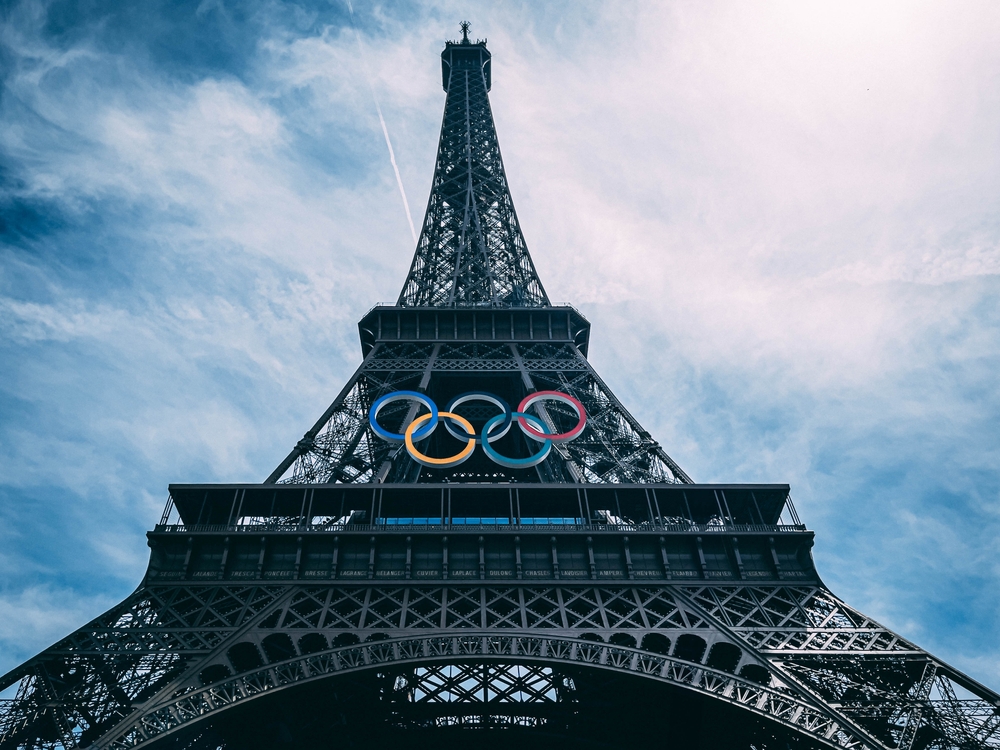I was fortunate enough to attend the Paris 2024 Olympics with my family. There were several reasons why I wanted to attend this sporting event. Growing up, I sailed and participated in other sports, which taught me many lessons that continue to benefit me today. I wanted to remind myself of these lessons and experience the athletes’ excitement at a sporting event, this time as a spectator. I wanted to reflect on the broad-scale benefits of sports: celebrating diversity, culture, common goals, and shared happiness. I have always recognized the role sports can play in promoting a healthier community. As a father, I also wanted my daughters to see how hard work and perseverance can help them achieve their goals.
Working as a health care provider and leader takes up much of my time and is a significant part of my life. While at the Olympics, I couldn’t resist drawing analogies between sports, the Olympics, and health care. Here, I will exemplify some of the lessons I learned that can be applied to health care.
Before attending the Olympics, I watched Roger Federer’s commencement address at Dartmouth, where he shared his “tennis lessons”:
Effort and grit. This lesson is relatable to physicians and our careers. We must continue pushing ourselves through medical school, residency, fellowship, and as attending physicians and leaders. We must use our time wisely and persistently. Most of the time, this effort will reflect positively on patient care. Over time, we can become better at our craft.
Taking one point at a time. As physicians and leaders, we strive for perfection, hoping to get it right every single time. However, it’s unrealistic to expect perfection. We aim to make the best-shared decisions with patients and provide the best counseling. Ultimately, our Hippocratic Oath is “First, do no harm.” As quality leaders, we strive to increase safety, learn from errors, and improve quality metrics, but perfection is nearly impossible—”to err is human.” As Federer says, “… deal with it…,” “you accept it. Cry it out if you need to …,” “… move on. Be relentless. Adapt and grow.” “Work harder. Work smarter.”
Life outside our profession. Life is bigger than our jobs and health care. Although medicine consumes a lot of our time, we must recognize that it’s not all that matters. We have interests, hobbies, families, friends, and other needs that require cultivation. We live in a community that we care for and belong to.
Some of my most memorable experiences at the Olympics included:
While attending tennis matches at Roland-Garros Stadium, I was impressed by the warm-up routines of top-ranked players and their endurance, especially considering many had just played at Wimbledon. Before the game, players warmed up and respected their opponents by facilitating their preparation. This reflected a high degree of collegiality. After the game, regardless of the result, players showed respect for their opponents and the umpire’s decisions. I could only imagine the immense amount of training, visualization techniques, and psychological and physical conditioning they underwent. This collegiality is something I will reflect on and reinforce at work.
One day, while walking along the Seine River, we coincidentally witnessed the men’s triathlon event. Helicopters flew overhead as athletes sped by on their road bikes. The excitement was palpable and contagious. As we watched the athletes pass, we smiled, cheered, and encouraged them to keep pushing, regardless of whether they were leading. In sports, as in health care, we should cheer for our patients’ and colleagues’ efforts. Quitting smoking, losing weight, increasing physical activity, and improving diet all take effort. We should recognize and encourage patients’ efforts. Similarly, in health care, some individuals excel in certain areas more than others. We should support everyone, whether they are leading or not. Leaders should elevate others, teach, and raise the bar. Watching the men’s tennis doubles final (Ram/Krajicek (USA) vs. Ebden/Peers (AUS)), it was inspiring to see the losing team (USA) encourage each other despite losing points.
We also attended a soccer match between Spain and Morocco. Like soccer, health care is a team effort. Coordination and communication between players, coaches, and support staff are essential, just as they are in health care.
Attending the Olympics was a once-in-a-lifetime experience. I am a huge sports fan and deeply appreciate the values promoted by the International Olympic Committee—excellence, respect, and friendship. I plan to become a better “athlete” both inside and outside the water.
Juan J. Delgado-Hurtado is an internal medicine physician.

